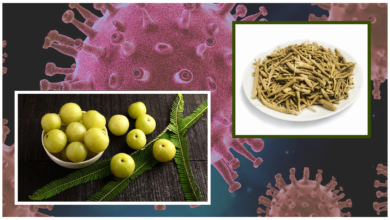Siddha Medicine & Health News
Facts to know about Thyroid Gland – World Thyroid Day
25 May being World Thyroid day, some facts about thyroid glands is shared below. A large ductless gland in your neck they are one of the most essential parts of your system and have many functions, the most important of which is to regulate your growth and development by controlling your metabolism. Some essential facts about the thyroid gland that everyone should know :
- The thyroid is one of the most important glands in your body. Situated in your neck, it secretes hormones which control a lot of things; the way you metabolize food, use energy, your sleep patterns, your temperature preferences, whether you gain or lose weight and lots more.
- Women are more prone to thyroid problems than men and most of these problems manifest during periods of flux in female hormones – during delivery and menopause.
- According to the Indian Thyroid Society, 4.2 crore Indians suffer from thyroid disorders and most of them are undiagnosed.
- Thyroid hormone secretion- increase or decrease can cause health problems.
- Weight loss despite a good appetite, increase in heart rate, high blood pressure, nervousness, increased sweating, enlargement in your neck, shorter menstrual periods, frequent bowel movements, trembling hands etc. could signal hyperthyroidism (a condition in which the body produces excess thyroid hormones).
- Weight gain or failure to lose weight despite a proper weight loss regime, lethargy, reduced heart rate, increased cold sensitivity, numbness in hands, enlargement in the neck, dry skin and hair, heavy menstrual periods and constipation could indicate hypothyroidism ( a condition in which the body produces less thyroid hormones).
- Iodine and Selenium are very important for the proper functioning of your thyroid. Make sure you use only iodized salt and eat enough of seafood (or spinach, sesame seeds, garlic in case of vegetarians) for iodine. For selenium, you could eat meat and fish, mushrooms, soybeans and sunflower seeds.
- Stress has also been linked to improper functioning of the thyroid gland leading to thyroid disease. So, take some time out and relax for your thyroid’s sake.
- You are at an increased risk of thyroid disease if you have a family history of thyroid disease, are suffering from type I diabetes, are over 50 years of age, have had thyroid surgery, have Down’s or Turner’s syndrome
- If untreated, thyroid problems could lead to major heart problems, infertility, Alzheimer’s disease, stroke due to high blood pressure and death.
- Thyroid cancer is the most common cancer of the endocrine glands (glands which secrete hormones). A lump in the neck with pain and swollen lymph nodes, hoarse voice, trouble in breathing and swallowing could signal its presence. Surgery to remove the gland fully or a part of it along with radioactive iodine therapy could help such cases.
- Ideally, everyone should be screened for thyroid dysfunction every five years after they turn 35. People with symptoms or risk factors should get tested more often.
- If your doctor suspects a thyroid disorder, he/she may ask you to undergo some tests (Thyroid profile) to measure your Thyroid stimulating hormone (TSH). If TSH levels are high, it shows that you are hypothyroid and vice versa. He/she may also check for other thyroid hormones. In a few cases, imaging and biopsies are done.
- If you are diagnosed as hypothyroid, your doctor might prescribe thyroid hormone pills which you’ll need to take for life. There is no instant ‘cure’ for thyroid problems.
- If you are ‘hyperthyroid’ your doctor may prescribe anti-thyroid medications and other drugs to reduce symptoms like increased heart rate and tremors. Radioactive iodine may also be used.
Source : Health.India.com



